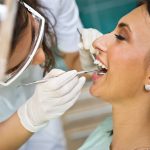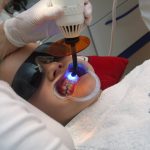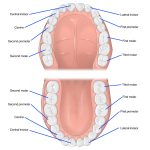Natural Ways to Remineralize Teeth: Tips and Tricks for Stronger Enamel
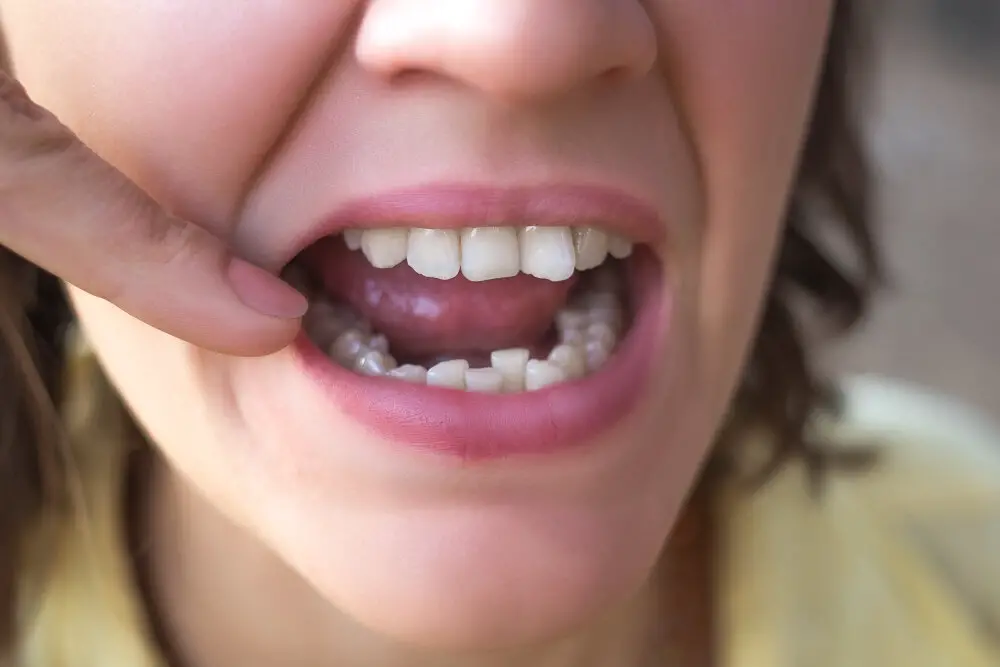
A healthy set of teeth is essential for overall well-being, and maintaining strong enamel is a crucial part of dental health. Enamel is the outermost layer of the teeth that protects them from damage and decay. However, due to poor diet, improper oral hygiene, or genetic factors, enamel can become weak and vulnerable to cavities and decay. Remineralization of teeth is the process of restoring lost minerals in the enamel, making it stronger and more resistant to decay. While there are several ways to remineralize teeth, natural methods are the safest and most effective. In this article, we will discuss some natural ways to remineralize teeth and maintain strong enamel for optimal dental health. One of the most effective ways to remineralize teeth naturally is through a healthy diet. Eating a diet rich in minerals like calcium, phosphorus, and magnesium can help strengthen enamel and promote oral health. Foods like leafy greens, dairy products, nuts, and fish are excellent sources of these minerals and should be included in the daily diet. In addition to a healthy diet, proper oral hygiene is crucial for maintaining strong enamel. Regular brushing, flossing, and using mouthwash can help remove harmful bacteria and prevent cavities. Furthermore, natural remedies like oil pulling and herbal rinses can also aid in remineralizing teeth and promoting oral health. With these natural tips and tricks, you can maintain strong enamel and protect your teeth from decay and damage.
Tooth remineralization is a natural process that occurs when minerals such as calcium, phosphate, and fluoride are deposited back into the tooth enamel. This process helps to repair and strengthen the enamel, which is the protective outer layer of the tooth. Remineralization is important because it can help to reverse early stages of tooth decay and prevent further damage to the teeth. Certain foods, such as dairy products and leafy green vegetables, can help to promote remineralization by providing the necessary minerals and nutrients. Additionally, practicing good oral hygiene habits, such as brushing and flossing regularly, can help to support the natural remineralization process and maintain strong, healthy teeth.
Strong enamel is crucial for dental health as it acts as a protective layer for our teeth. Enamel is the outermost layer of our teeth that shields them from various bacterial attacks, food acids, and other harmful substances. It also helps to maintain the natural color of our teeth. When the enamel is damaged or weakened, it can lead to tooth decay, sensitivity, and other dental issues. Therefore, it is necessary to take care of our enamel by adopting healthy dental habits, such as regular brushing and flossing, a balanced diet, and avoiding sugary and acidic foods and drinks. Additionally, natural remedies like oil pulling, fluoride treatments, and proper hydration can also help strengthen enamel and maintain good dental health.
Diet

Diet plays a significant role in maintaining healthy teeth and strong enamel. Eating a balanced and nutritious diet that is rich in vitamins and minerals is essential for remineralizing teeth. Foods that are high in calcium, phosphorus, and vitamin D are particularly important for strengthening teeth and promoting healthy enamel. Calcium-rich foods such as dairy products, leafy green vegetables, and fortified cereals can help to replenish lost minerals in teeth and prevent decay. Phosphorus-rich foods like eggs, fish, and meat can also aid in the remineralization process by helping to rebuild and strengthen tooth enamel. Additionally, vitamin D is essential for the absorption and utilization of calcium in the body, making it important for strong and healthy teeth. On the other hand, a diet that is high in sugar and processed foods can be detrimental to dental health. Sugary foods and drinks can lead to the production of acid in the mouth, which can erode tooth enamel and cause decay. Consuming acidic foods and drinks like citrus fruits and soda can also weaken tooth enamel over time. It is important to limit the intake of sugary and acidic foods and drinks, and to maintain a healthy and balanced diet for optimal dental health. By following a nutritious diet and limiting harmful foods and drinks, it is possible to naturally remineralize teeth and strengthen enamel for a healthier and brighter smile.
A diet rich in foods that aid in remineralization can help strengthen teeth enamel and prevent decay. Calcium-rich foods such as milk, cheese, and yogurt are essential for healthy teeth, as calcium is the main component of enamel. Foods high in phosphorus, such as lean meats, nuts, and eggs, can also help remineralize teeth as phosphorus works with calcium to strengthen and repair enamel. Green leafy vegetables like kale and spinach, as well as fruits like apples and pears, contain high amounts of fiber that can help remove plaque and promote saliva production, which helps neutralize harmful acids in the mouth. Additionally, foods rich in vitamin D, like fatty fish and mushrooms, can aid in the absorption of calcium and promote healthy teeth and bones. By incorporating these foods into your diet, you can help keep your teeth strong and healthy for years to come.
When it comes to maintaining strong and healthy teeth, it is essential to pay attention to what we eat. Some foods can harm enamel and cause tooth decay. Sugary and acidic foods, such as candies, soft drinks, and citrus fruits, can erode enamel over time. Highly processed foods that are high in carbohydrates and sugars can also increase the risk of cavities. Additionally, sticky foods like dried fruits and caramel can cling to teeth for extended periods, increasing the chances of decay. To protect enamel, it is recommended to limit the consumption of harmful foods and opt for healthier options, such as fruits and vegetables, lean proteins, and whole grains.
Oral Hygiene
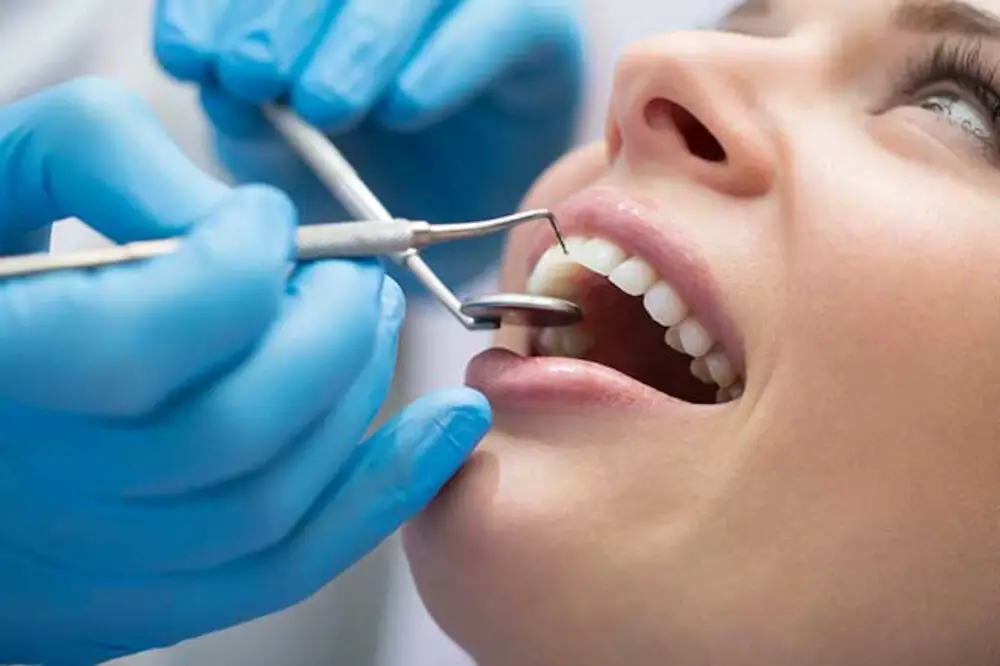
Oral hygiene is an essential part of maintaining strong and healthy teeth. Regular brushing, flossing, and rinsing with mouthwash can help prevent tooth decay and gum disease. It is recommended to brush your teeth twice a day, for two minutes each time, and floss at least once a day. Using a fluoride toothpaste can also help strengthen your teeth and prevent cavities. In addition to traditional oral hygiene practices, there are also natural ways to remineralize teeth and strengthen enamel. Eating a balanced diet that is rich in calcium, phosphorus, and vitamin D can help promote strong teeth. Avoiding sugary and acidic foods and drinks can also help prevent enamel erosion. Chewing sugar-free gum can also stimulate saliva production, which helps neutralize acid in the mouth and prevent tooth decay. Incorporating these natural practices into your oral hygiene routine can help keep your teeth strong and healthy for years to come.
Proper brushing techniques are essential for maintaining strong and healthy enamel. To start, it is recommended that you brush your teeth twice a day for at least two minutes each time. When brushing, use a soft-bristled toothbrush and gentle circular motions to clean all surfaces of your teeth, including the front, back, and chewing surfaces. Be sure to brush your tongue as well to remove any bacteria that may cause bad breath. It’s also important to avoid brushing too hard, as this can damage your enamel and cause gum recession. Finally, don’t forget to floss daily to remove any food particles and plaque that your toothbrush may have missed. By following these simple steps, you can help remineralize your teeth and keep your enamel strong and healthy.
Flossing and interdental cleaning are crucial parts of maintaining healthy teeth and gums. While brushing can remove plaque and bacteria from the surfaces of our teeth, it cannot effectively reach the spaces between them. Flossing and interdental cleaning with tools like interdental brushes or water flossers are essential for removing food particles and plaque from these hard-to-reach areas. Neglecting interdental cleaning can lead to gum disease, tooth decay, and even tooth loss. By incorporating flossing and interdental cleaning into our daily oral hygiene routine, we can help prevent these issues and promote strong, healthy teeth and gums.
Mouthwash is a great addition to any oral hygiene routine, as it not only freshens breath but also helps to kill bacteria that can lead to tooth decay and gum disease. Many mouthwashes contain alcohol, which can be harsh on the gums and cause dry mouth. However, there are natural and alcohol-free options available that can still provide the same benefits. Look for mouthwashes that contain ingredients such as tea tree oil, peppermint oil, and aloe vera, which have antibacterial properties and can soothe inflamed gums. It’s important to note that mouthwash should never be used as a substitute for brushing and flossing, but rather as a complement to these practices. Incorporating mouthwash into your daily routine can help to promote stronger enamel and overall oral health.
Lifestyle Changes

Lifestyle changes play an essential role in maintaining strong and healthy teeth. One significant factor that affects tooth remineralization is diet. Eating a balanced diet rich in vitamins and minerals such as calcium, phosphorus, and vitamin D is essential. These nutrients help in the formation and repair of tooth enamel. Foods such as dairy products, leafy greens, nuts, and fish are excellent sources of these minerals. Reducing the intake of sugary and acidic foods and drinks can also contribute to better oral health. These types of foods and beverages can erode the enamel and increase the risk of tooth decay. Additionally, drinking water with fluoride helps strengthen the teeth and reduce the risk of cavities. Another lifestyle change that can benefit tooth remineralization is good oral hygiene. Brushing twice a day with fluoride toothpaste and flossing daily can remove plaque and prevent the buildup of harmful bacteria in the mouth. Using mouthwash can also help kill bacteria and freshen breath. Avoiding tobacco products and limiting alcohol consumption can also contribute to better oral health. Smoking and chewing tobacco can stain teeth, cause bad breath, and increase the risk of oral cancer. Moreover, excessive alcohol consumption can lead to dry mouth and increase the risk of gum disease. By making these lifestyle changes, one can improve their oral health and promote tooth remineralization for stronger enamel.
Reducing sugar intake is crucial in maintaining healthy teeth and strong enamel. Sugar is a major culprit in causing tooth decay and erosion of the enamel. When sugar is consumed, it interacts with the bacteria in our mouths to produce acid, which attacks the enamel on our teeth. Over time, this can lead to cavities and weakened teeth. To reduce your sugar intake, try to limit your consumption of sugary drinks, candies, and desserts. Instead, opt for healthier alternatives like fruits, vegetables, and whole grains. Drinking plenty of water can also help to flush out any sugar residue in your mouth. By reducing your sugar intake, you can protect your teeth and maintain a healthy, beautiful smile.
Quitting smoking is one of the most effective ways to improve oral health and remineralize teeth. Smoking can cause severe damage to the enamel, making teeth more prone to cavities and decay. The chemicals in cigarettes can also lead to gum disease and tooth loss. Quitting smoking not only improves oral health, but it also has numerous benefits for overall health and well-being. While quitting can be challenging, there are many resources available to help individuals successfully quit smoking, including support groups, nicotine replacement therapy, and counseling. By quitting smoking, individuals can take a significant step toward improving their oral health and overall quality of life.
Reducing alcohol consumption is one of the most effective ways to promote healthy teeth and strong enamel. Alcohol can be highly acidic, which can erode tooth enamel over time, leaving teeth vulnerable to decay and cavities. Additionally, alcohol consumption can lead to dehydration, which can dry out the mouth and reduce the production of saliva, a natural defense against harmful bacteria in the mouth. By cutting back on alcohol or eliminating it altogether, individuals can reduce their risk of dental problems and promote better overall oral health. Instead, they can opt for healthier beverages like water or herbal teas, which can help remineralize teeth and promote enamel strength.
Reducing stress is an essential step in promoting overall oral health and remineralization of teeth. When the body is stressed, it releases hormones that can negatively affect enamel and increase the risk of tooth decay. To reduce stress levels, individuals should prioritize self-care activities such as exercise, meditation, and deep breathing exercises. Additionally, it is important to avoid or limit the consumption of caffeine, alcohol, and sugary foods, as they can exacerbate stress levels. By incorporating stress-reducing activities into daily routines, individuals can promote stronger, healthier teeth and overall well-being.
Natural Remedies

Natural remedies have been used for centuries to promote oral health and remineralize teeth. One of the best natural remedies for improving oral health is oil pulling. This technique involves swishing a tablespoon of oil, such as coconut oil or sesame oil, in the mouth for 15-20 minutes. The oil helps to remove harmful bacteria and toxins from the mouth, promoting healthier teeth and gums. Oil pulling can also help to whiten teeth and freshen breath. Other natural remedies for remineralizing teeth include consuming calcium-rich foods, such as leafy greens, dairy products, and almonds. Additionally, consuming foods rich in vitamin D, such as fatty fish and eggs, can also help to promote healthy teeth and gums. Another popular natural remedy for promoting oral health is using a saltwater rinse. Saltwater can help to reduce inflammation and promote healing in the mouth. To make a saltwater rinse, simply mix a teaspoon of salt into a cup of warm water and swish it around in the mouth for 30 seconds to a minute. This can be done several times a day to promote healthy teeth and gums. Other natural remedies for promoting oral health include using baking soda as a toothpaste, using essential oils, such as peppermint or clove oil, for their antibacterial properties, and consuming probiotics to promote healthy gut bacteria, which can also contribute to oral health. By incorporating these natural remedies into your oral care routine, you can promote healthier teeth and gums, and improve your overall oral health.
Oil pulling is an ancient Ayurvedic practice that involves swishing oil in the mouth for 10-20 minutes to improve oral health. The most commonly used oil for oil pulling is coconut oil, which contains lauric acid, a natural antimicrobial agent that helps to kill harmful bacteria in the mouth. Oil pulling is believed to reduce plaque buildup, prevent gum disease, and whiten teeth. It is also said to promote overall oral hygiene and freshen breath. However, while there is some anecdotal evidence to support the benefits of oil pulling, more research is needed to fully understand its effectiveness.
Using fluoride-free toothpaste is an excellent way to remineralize teeth naturally. Fluoride has been a standard addition to toothpaste for decades due to its alleged ability to strengthen tooth enamel. However, recent studies have shown that excessive fluoride intake can lead to dental fluorosis and other health problems. Fluoride-free toothpaste, on the other hand, uses natural ingredients such as baking soda, coconut oil, and essential oils to combat bacteria and plaque buildup while promoting the natural remineralization of enamel. It is a safe and effective alternative that helps maintain healthy teeth and gums without any harmful side effects.
Herbal remedies have been used for centuries to treat various ailments, including dental issues. Some herbs are believed to have remineralizing properties that can help strengthen and repair tooth enamel. One of the most commonly used herbs for dental health is chamomile. It is known for its anti-inflammatory and antibacterial properties, which can help soothe inflamed gums and fight off harmful bacteria that cause tooth decay. Another herb that is often used for dental health is sage. It contains compounds that can help reduce inflammation and protect against plaque buildup. Other herbs that are believed to have remineralizing properties include horsetail, nettle, and oat straw. While herbal remedies may be helpful in promoting dental health, it is important to remember that they should not be used as a substitute for professional dental care.
Apart from oil pulling, there are several other natural remedies that can help in remineralizing teeth and strengthening enamel. One such remedy is using fluoride-free remineralizing toothpaste that contains ingredients such as calcium, phosphate, and silica. Additionally, consuming a diet rich in calcium, phosphorus, and vitamin D can also help in enhancing the mineral content of teeth. Chewing sugar-free gum that contains xylitol can also be beneficial for oral health as it helps in increasing saliva production and reducing the risk of tooth decay. Drinking green tea, which contains catechins, can also aid in preventing tooth decay by reducing bacterial growth. Overall, incorporating these natural remedies into your oral care routine may help in promoting stronger enamel and healthier teeth.
Maintaining the health of our teeth is crucial for a beautiful smile and overall wellbeing. While there are various dental treatments available, natural ways to remineralize teeth and strengthen enamel are gaining popularity due to their effectiveness and affordability. Firstly, a nutritious diet rich in calcium, phosphorus, and vitamins such as A, D, and K2 can provide the necessary minerals for enamel repair. Secondly, reducing sugar intake and practicing good oral hygiene, such as brushing and flossing regularly, can prevent decay and promote remineralization. Additionally, using fluoride-free toothpaste, oil pulling, and consuming probiotics can also aid in remineralization. By incorporating these natural methods into your dental care routine, you can strengthen your enamel and maintain healthy teeth.
Regular dental checkups and cleanings are essential for maintaining healthy teeth and gums. These appointments allow dentists to identify any potential issues before they become major problems, such as cavities or gum disease. Cleanings remove plaque buildup that can lead to decay or infection, and also help to prevent bad breath. Additionally, regular checkups can catch oral cancer early, when it is most treatable. By prioritizing regular dental visits, individuals can maintain strong enamel and a healthy smile for years to come.
Conclusion

In conclusion, remineralizing teeth naturally is not only possible but also effective in restoring and strengthening enamel. By incorporating a few simple tips and tricks into your daily routine, such as consuming a balanced diet, practicing good oral hygiene, and using natural remedies like oil pulling and fluoride-free toothpaste, you can improve the health and appearance of your teeth without relying on harsh chemicals or expensive dental procedures. Remember, prevention is always better than cure, and taking care of your teeth now can save you from costly and painful dental problems in the future. So, start implementing these natural ways to remineralize your teeth today and enjoy a brighter, healthier smile tomorrow.

